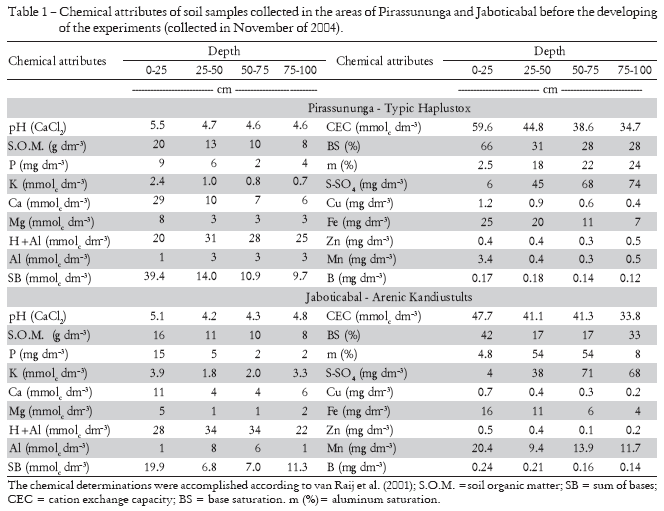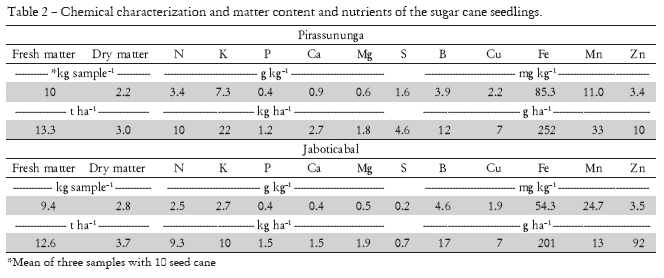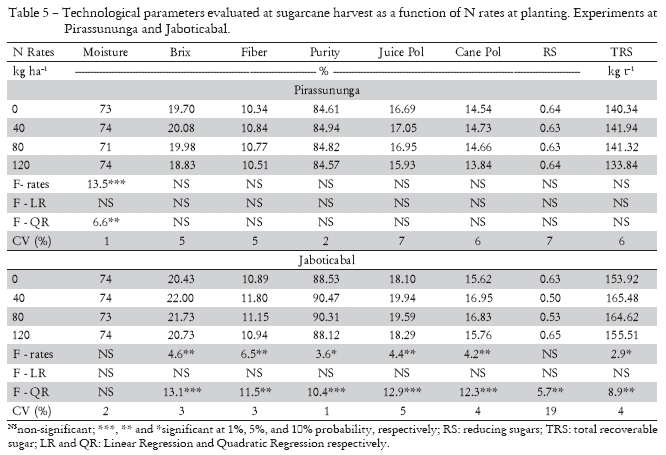A still unclear question related to sugarcane cropping refers to the low response of the planted cane to nitrogen fertilization. Two experiments were carried out in areas under a Typic Hapludox, located in Pirassununga, São Paulo State, Brazil, and an Arenic Kandiudult, located in Jaboticabal, São Paulo State, Brazil, with the objective to evaluate planted cane response to nitrogen fertilization at planting. The experimental design was organized as random blocks and treatments consisted of three N rates (40, 80, and 120 kg ha-1 N-urea) and a control without N. Nitrogen fertilizers were applied to the bottom of the planting furrow and then incorporated into the soil. During the maximum growth stage, +1 leaf samples were collected from all experimental plots to evaluate the crop nutritional status. In the Pirassununga experiment, N fertilization at planting increased N, K, Mg, and S contents in the leaves and increased the stalk yield, without effect in the technological attributes. Conversely, no stalk yield response was observed at the Jaboticabal experiment, but N fertilization benefited the stalk technological attributes. The N rates increased the sugar yield per hectare in both experiments. The highest margin of agricultural contribution was obtained at the rate of 40 kg ha-1 N.
Saccharum spp.; nitrogen; urea







